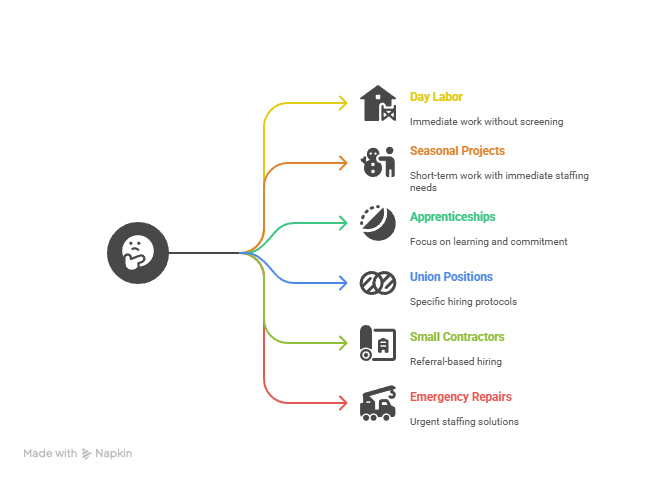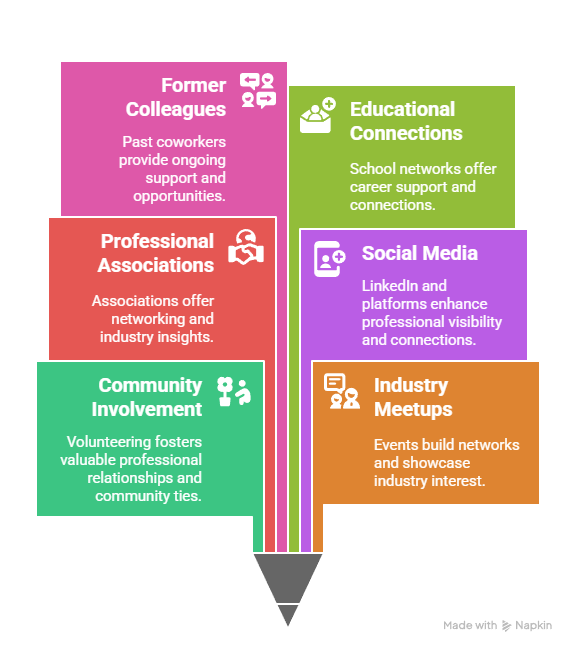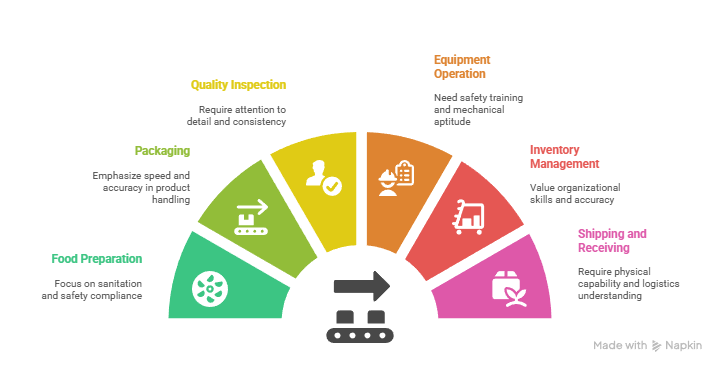The New York Fair Chance Act creates substantial employment opportunities by limiting when employers can conduct background checks and consider criminal history in hiring decisions. This comprehensive legislation, combined with Article 23-A protections, opens doors to numerous job opportunities across multiple industries for individuals with criminal records.
Key Takeaways
- The New York Fair Chance Act prohibits most employers from conducting background checks until after extending a conditional job offer
- Article 23-A requires employers to demonstrate a direct relationship between criminal history and job responsibilities before disqualifying candidates
- Industries like hospitality, retail, construction, and food service frequently offer New York Fair Chance Act jobs without extensive screening
- Temporary staffing agencies and gig economy platforms often provide immediate employment opportunities under fair chance protections
- Small businesses and startups may forgo background checks due to cost considerations and streamlined hiring processes
- Understanding your rights under New York employment law can significantly improve job search success rates
Understanding New York Fair Chance Act Employment Opportunities
The New York Fair Chance Act has revolutionized employment opportunities across the state since its implementation in 2015. This groundbreaking legislation fundamentally changed how employers approach background screening in hiring processes. The law applies to employers with four or more employees. It prohibits inquiring about criminal history until after making a conditional job offer.
This legislation works in conjunction with New York Correction Law Article 23-A. This older law has protected job seekers with criminal records since 1976. Article 23-A requires employers to conduct individualized assessments when considering criminal history. Employers must evaluate the nature of the offense. They must consider time elapsed since conviction. They must examine the relationship between criminal history and specific job duties.
These protections create a landscape where numerous New York Fair Chance Act jobs exist across various industries. Employers may choose not to screen at all. Legal requirements may make background checks less relevant to hiring decisions. Understanding these laws empowers job seekers to navigate the employment market effectively.
New York City expanded these protections even further. The municipal Fair Chance Act covers more employers within city limits. It includes stricter penalties for violations. These enhanced protections create additional safeguards for job seekers seeking New York Fair Chance Act jobs in the metropolitan area.
Industries Offering New York Fair Chance Act Jobs

Hospitality and Food Service Opportunities
The hospitality industry consistently provides New York Fair Chance Act jobs for individuals seeking employment without extensive screening processes. Restaurants, cafes, and food service establishments often prioritize immediate availability over background verification. Many establishments operate with high turnover rates and urgent staffing needs. This leads managers to focus on skills demonstration rather than background investigation.
Fast-paced environments like hotels, catering companies, and event venues frequently hire based on interviews and practical assessments. These businesses emphasize customer service abilities, work ethic, and reliability over criminal history screening. Restaurant managers often need to fill positions immediately. They focus on handling food service pressure and customer interaction experience.
The food service industry values hands-on skills and availability. Many restaurants conduct working interviews where candidates demonstrate abilities. This approach allows employers to evaluate job performance directly. Restaurant work provides immediate income opportunities for those seeking New York Fair Chance Act jobs.
Retail and Customer Service Positions
Retail establishments often operate under pressure to fill positions quickly. This is particularly true during seasonal hiring periods. Many stores conduct on-the-spot interviews and same-day hiring for entry-level positions. Customer interaction skills and schedule flexibility often take precedence over background screening procedures.
| Position Type | Hiring Timeline | Background Check Rate |
| Cashier | 1-2 days | 15% of employers |
| Sales Associate | 1-3 days | 20% of employers |
| Stock Clerk | Same day to 1 week | 10% of employers |
| Customer Service | 2-5 days | 25% of employers |
Clothing stores, grocery chains, and department stores frequently offer New York Fair Chance Act jobs without background checks. They focus on customer service abilities and cash handling skills. Many retail managers prefer training new employees on company policies rather than spending time on background verification.
Construction and Manual Labor Fair Chance Opportunities

Construction companies and manual labor employers frequently prioritize skills, physical capability, and availability over background checks when filling New York Fair Chance Act jobs. The industry's project-based nature creates urgent staffing needs that favor immediate hiring. Many construction firms focus on trade skills, safety training, and work experience rather than comprehensive background investigations.
Skilled trades often evaluate candidates based on their ability to perform specific tasks. Electricians, plumbers, and carpenters typically demonstrate skills through practical assessments. Construction foremen care more about work quality and safety compliance than criminal history. The industry values experience and reliability above background screening.
Union positions within construction trades often have their own hiring protocols. These may not include traditional background screening. Apprenticeship programs typically evaluate candidates based on aptitude and commitment rather than criminal history. Many construction workers advance through skill demonstration and on-the-job performance.
The construction industry faces ongoing labor shortages in many trades. This shortage creates opportunities for workers seeking New York Fair Chance Act jobs who might face challenges in other industries. Construction companies often prioritize filling positions quickly to meet project deadlines.

- Day labor opportunities: Many construction sites hire workers daily without screening
- Seasonal projects: Road work and outdoor construction need immediate staffing
- Skilled trade apprenticeships: Focus on learning ability and commitment
- Union positions: Have specific hiring protocols that may bypass traditional screening
- Small contractors: Often hire based on referrals and demonstrated skills
- Emergency repairs: Urgent projects require immediate staffing solutions
Gig Economy and Temporary Fair Chance Employment
Delivery and Transportation Services
The gig economy has created numerous New York Fair Chance Act jobs for individuals seeking flexible work without traditional screening requirements. Food delivery platforms, package delivery services, and ride-sharing alternatives often have streamlined onboarding processes. While some platforms conduct limited screening, many focus primarily on vehicle requirements and basic documentation verification.
Local delivery services and courier companies frequently hire based on driving record and availability rather than comprehensive background checks. These positions offer immediate income opportunities and flexible scheduling. Many delivery services need drivers immediately. They focus on vehicle insurance and valid driver's licenses.
Independent delivery contractors can start working within days of application. Many platforms allow drivers to begin earning money while verification processes continue. This immediate income opportunity appeals to job seekers who need quick employment solutions under New York Fair Chance Act protections.
Temporary Staffing Agencies
Temporary employment agencies serve as valuable resources for connecting job seekers with New York Fair Chance Act jobs and immediate work opportunities. These agencies often maintain relationships with employers who prioritize quick placements over extensive screening. Many temp positions become permanent employment opportunities. This allows workers to demonstrate value before background considerations arise.
Day labor services and short-term staffing solutions typically focus on basic qualifications and immediate availability. These services provide crucial income opportunities while job seekers pursue longer-term New York Fair Chance Act jobs. Temporary work allows people to build positive employment records.
| Agency Type | Typical Industries | Average Placement Time |
| General Labor | Warehouse, Manufacturing | Same day |
| Office Temp | Administrative, Clerical | 1-2 days |
| Hospitality | Events, Food Service | 1-3 days |
| Seasonal | Retail, Agriculture | Immediate to 1 week |
Staffing agencies often have multiple client companies with varying requirements. Some clients may require background checks while others do not. This variety creates opportunities for job seekers to find suitable New York Fair Chance Act jobs.
Small Business and Startup Fair Chance Hiring
Small businesses and startup companies often operate with limited HR resources and streamlined hiring processes when filling New York Fair Chance Act jobs. These employers typically prioritize cultural fit, skills demonstration, and immediate contribution over formal background screening procedures. The cost and time investment required for comprehensive background checks may be prohibitive for smaller organizations.
Many small business owners prefer personal referrals, direct interviews, and trial periods to evaluate potential employees. This approach creates opportunities for job seekers to showcase abilities and work ethic before background considerations become relevant. Startup environments particularly value innovation, adaptability, and hands-on contribution.
Small businesses often make hiring decisions based on personal interaction. They may conduct informal interviews during busy work periods. This personal approach allows candidates to demonstrate personality and work ethic directly. Many small business owners value character and reliability over formal screening processes.
Local businesses frequently hire from their immediate community. They rely on word-of-mouth recommendations and local reputation. Neighborhood shops, family restaurants, and service businesses often know their employees personally. This community connection reduces the perceived need for formal background screening when offering New York Fair Chance Act jobs.
Creative and Freelance Industries
Creative industries and freelance markets operate primarily on portfolio-based evaluation systems when considering candidates for New York Fair Chance Act jobs. Clients and employers focus on creative output, technical skills, and project completion rather than background verification. These markets reward talent, creativity, and professional results over traditional employment criteria.
Graphic designers, writers, photographers, and digital marketers typically build careers on demonstrated results. Portfolio quality and client satisfaction matter more than background screening. Many creative professionals work as independent contractors. This reduces the likelihood of formal background check requirements.
Freelance platforms focus on skills verification and client reviews rather than background screening when connecting workers with New York Fair Chance Act jobs. Success in creative industries depends on talent demonstration and professional reputation. Many creative professionals work remotely, which further reduces background check requirements.
Entry-Level New York Fair Chance Act Jobs
New York's employment laws create particular protections for entry-level service positions where criminal history has minimal relevance to job performance. Positions such as food service workers, retail associates, and customer service representatives often fall under enhanced fair chance protections. Employers must demonstrate clear job-relatedness before considering criminal history for these New York Fair Chance Act jobs.
The legal framework recognizes that many service positions require skills unrelated to most criminal history. This creates practical limitations on background screening that benefit job seekers across multiple industries. Entry-level positions typically focus on basic job skills and customer interaction abilities.
Many employers hiring for lower-wage positions choose to forgo background screening due to cost-benefit considerations. The expense of comprehensive background checks may represent a significant percentage of the position's initial compensation. This economic reality creates opportunities for job seekers in various entry-level New York Fair Chance Act jobs.
| Wage Range | Background Check Likelihood | Common Industries |
| $15-18/hour | Low (20-30%) | Fast food, retail, cleaning |
| $18-22/hour | Moderate (40-50%) | Customer service, hospitality |
| $22-25/hour | Higher (60-70%) | Office work, healthcare support |
Budget constraints often lead employers to focus on essential qualifications and immediate availability rather than background verification. These positions frequently offer advancement opportunities that allow workers to build positive employment records.
- Fast food positions: Focus on customer service and food handling abilities
- Retail associates: Emphasize sales skills and product knowledge
- Warehouse workers: Prioritize physical capability and safety compliance
- Cleaning services: Value reliability and attention to detail
- Customer support roles: Require communication skills and problem-solving abilities
Strategies for Finding New York Fair Chance Act Jobs

Direct Application Approaches
Successful job searching for New York Fair Chance Act jobs requires strategic approaches that leverage legal protections and market opportunities. Direct applications to small businesses, restaurants, and retail establishments often yield positive results. Many employers appreciate proactive candidates who demonstrate initiative and genuine interest.
Walking into establishments during non-peak hours and speaking directly with managers can create immediate opportunities for New York Fair Chance Act jobs. This approach allows job seekers to showcase personality, communication skills, and work ethic before formal application processes begin. Face-to-face interaction often creates stronger impressions than online applications.
Timing plays a crucial role in direct application success. Visiting businesses during slower periods allows for meaningful conversations with hiring managers. Morning hours before lunch rushes or mid-afternoon periods often work well. Professional presentation during direct applications significantly impacts success rates.
Networking and Referral Systems
Personal and professional networks provide crucial pathways to New York Fair Chance Act jobs that may not involve traditional screening processes. Many employers prefer hiring through referrals from trusted employees or professional contacts. These referrals often carry more weight than formal applications and may bypass standard screening procedures.
Building relationships within target industries creates ongoing opportunities for employment referrals and recommendations. Professional associations, community organizations, and informal networks all contribute to successful job placement outcomes in New York Fair Chance Act jobs. Networking requires consistent effort and genuine relationship building.
Social connections often lead to job opportunities that never appear in public job postings. Many New York Fair Chance Act jobs get filled through word-of-mouth recommendations before formal advertising begins. Maintaining professional relationships increases access to these hidden opportunities.

- Community involvement: Volunteering creates valuable professional connections
- Industry meetups: Attending events builds networks and demonstrates interest
- Professional associations: Joining relevant groups provides networking opportunities
- Social media: Using LinkedIn and other platforms professionally
- Former colleagues: Maintaining relationships with previous coworkers
- Educational connections: Leveraging school and training program networks
Understanding Your Rights Under Fair Chance Legislation
New York Fair Chance Act Protections
The New York Fair Chance Act provides specific protections that job seekers must understand to advocate effectively when pursuing New York Fair Chance Act jobs. Employers cannot inquire about criminal history during initial application processes or interviews. They must wait until extending a conditional job offer before conducting background screening. This timing requirement creates opportunities for candidates to demonstrate qualifications before background considerations arise.
When employers do conduct background checks, they must follow specific procedures. These include providing copies of background reports and allowing time for responses. Candidates have rights to correct inaccurate information and provide context for criminal history through individualized assessment processes.
Understanding these procedural requirements helps job seekers navigate the employment process more effectively. Many employers lack complete knowledge of these legal requirements. Educated candidates can advocate for proper treatment and fair consideration when applying for New York Fair Chance Act jobs.
Article 23-A Assessment Requirements
Article 23-A requires employers to demonstrate a direct relationship between criminal history and specific job responsibilities before making adverse hiring decisions for New York Fair Chance Act jobs. This requirement creates a high standard for employer decision-making. Many employers cannot meet this standard for most positions.
The law requires consideration of multiple factors including the nature and gravity of offenses, time elapsed since conviction, and evidence of rehabilitation. Employers must conduct individualized assessments rather than blanket exclusions. This requirement protects job seekers from automatic disqualification based on criminal history.
| Assessment Factor | Employer Must Consider | Job Seeker Can Provide |
| Nature of Offense | Specific criminal acts | Context and circumstances |
| Time Elapsed | Years since conviction | Evidence of rehabilitation |
| Job Relationship | Direct connection to duties | Skills and qualifications |
| Rehabilitation Evidence | Personal growth indicators | Certificates, references, community service |
Written justification requirements mean employers who deny employment based on criminal history must provide detailed explanations. This requirement creates accountability and transparency in hiring decisions. Understanding these requirements empowers job seekers to engage in meaningful discussions with potential employers about New York Fair Chance Act jobs.
Industries With Modified Fair Chance Screening
Healthcare and Social Services
While healthcare positions often require background screening for regulatory compliance, many support positions within healthcare organizations operate under different requirements when offering New York Fair Chance Act jobs. Food service workers in hospitals, maintenance staff, and administrative support roles may face limited screening requirements. Some healthcare employers conduct modified screening that focuses on specific offense categories.
Community health organizations and social service agencies often embrace fair chance employment practices as part of their organizational missions. These employers may conduct background screening but evaluate results through enhanced individualized assessment processes. They consider rehabilitation and community contribution in hiring decisions for New York Fair Chance Act jobs.
Healthcare support positions often focus on specific job-related skills rather than comprehensive background screening. Environmental services, food preparation, and administrative roles may have modified requirements. These positions provide entry points into healthcare careers with advancement opportunities.
Technology and Remote Work

The technology sector increasingly embraces skills-based hiring that focuses on technical capabilities rather than background screening when filling New York Fair Chance Act jobs. Many technology companies prioritize coding abilities, problem-solving skills, and project experience over traditional employment criteria. Remote work opportunities particularly emphasize results and technical contribution over background considerations.
Freelance technology work and project-based employment often operate without background screening requirements. These opportunities allow professionals to build portfolios and establish client relationships based on technical expertise and project success. Technology skills demonstration often matters more than traditional credentials for New York Fair Chance Act jobs.
Software development, web design, and digital marketing roles frequently evaluate candidates through technical assessments and portfolio reviews. These skills-based evaluations provide opportunities for talented individuals regardless of background history. Remote work arrangements reduce many traditional employment screening requirements.
Seasonal and Event-Based Fair Chance Employment
New York's diverse economy creates numerous seasonal and event-based New York Fair Chance Act jobs that often prioritize immediate availability over background screening. Holiday retail hiring, summer tourism positions, and special event staffing frequently operate with streamlined hiring processes. These opportunities provide income while job seekers pursue longer-term employment goals.
Agricultural work, festival staffing, and seasonal recreation positions often hire based on physical capability and availability rather than comprehensive background investigation. Many of these positions offer pathways to permanent employment for workers who demonstrate reliability and strong performance.
Tourism and hospitality businesses experience significant seasonal fluctuations in staffing needs. Summer resorts, winter ski areas, and holiday attractions need temporary workers quickly. These businesses focus on immediate availability and customer service skills rather than extensive screening processes when filling New York Fair Chance Act jobs.
| Season | Primary Industries | Typical Positions | Duration |
| Spring | Landscaping, Event Setup | Groundskeepers, Setup Crew | March - May |
| Summer | Tourism, Recreation | Resort Staff, Camp Counselors | June - August |
| Fall | Retail, Harvest | Sales Associates, Farm Workers | September - November |
| Winter | Holiday Retail, Snow Removal | Cashiers, Plow Operators | December - February |
Event staffing companies provide workers for concerts, festivals, sporting events, and corporate gatherings. These positions typically last from one day to several weeks. Event staffing focuses on reliability, physical capability, and professional appearance rather than background screening for New York Fair Chance Act jobs.
Manufacturing and Warehouse Fair Chance Opportunities
Manufacturing companies and warehouse operations frequently hire based on physical capability, work ethic, and reliability rather than comprehensive background screening when offering New York Fair Chance Act jobs. These industries often experience high turnover and urgent staffing needs. They focus on immediate productivity and safety compliance rather than extensive background investigation.
Production line work, packaging, and material handling positions typically emphasize hands-on skills and physical stamina. Many manufacturing employers conduct working interviews where candidates demonstrate abilities on actual job tasks. This practical approach allows workers to prove capabilities directly.
Warehouse operations for major retailers and distribution companies often hire quickly to meet seasonal demands. Peak shipping periods require immediate staffing increases. These companies focus on productivity metrics and safety compliance rather than background screening for entry-level New York Fair Chance Act jobs.
The growth of e-commerce has created substantial warehouse employment opportunities. Distribution centers need workers for order fulfillment, inventory management, and shipping operations. These positions often prioritize productivity and accuracy over background screening.
- Assembly line positions: Focus on manual dexterity and production pace
- Packaging and sorting roles: Emphasize attention to detail and efficiency
- Material handling jobs: Require physical strength and safety awareness
- Quality control positions: Value attention to detail and reliability
- Shipping and receiving: Need organizational skills and physical capability
- Forklift operations: Require certification and safety compliance
Transportation and Logistics Fair Chance Jobs

The transportation and logistics industry offers numerous New York Fair Chance Act jobs without traditional background screening requirements. Local delivery companies, moving services, and freight operations often prioritize driving records and physical capability over comprehensive background checks. These positions provide immediate employment opportunities with competitive compensation.
Package delivery services experience constant turnover and urgent staffing needs. They focus on vehicle operation skills, customer service abilities, and physical stamina. Many delivery companies hire drivers quickly to meet service demands. The emphasis falls on driving safety and customer interaction rather than background investigation.
Moving companies and freight services need workers with physical strength and reliability. These businesses operate on tight schedules and customer deadlines. They value workers who can handle physical demands and maintain professional customer relationships.
| Transportation Sector | Key Requirements | Background Check Rate |
| Local Delivery | Valid license, vehicle | 25% |
| Moving Services | Physical strength, reliability | 20% |
| Freight Handling | Safety compliance, stamina | 30% |
| Warehouse Logistics | Organizational skills, accuracy | 35% |
Logistics support positions in warehouses and distribution centers focus on organizational skills and physical capability. Order processing, inventory management, and shipping coordination roles emphasize accuracy and efficiency. These New York Fair Chance Act jobs often lead to advancement opportunities within logistics companies.
Food Production and Processing Fair Chance Opportunities
Food production and processing facilities offer substantial New York Fair Chance Act jobs with modified screening approaches. These industries prioritize food safety knowledge, physical capability, and reliability over comprehensive background screening. Food handling positions focus on health department requirements and safety compliance rather than criminal history investigation.
Bakeries, food processing plants, and commercial kitchens often hire based on food service experience and availability. These businesses operate with tight production schedules and quality requirements. They need workers who understand food safety protocols and can maintain production standards.
Food packaging, quality inspection, and production line work emphasize attention to detail and consistency. These positions require workers who can follow specific procedures and maintain quality standards. Physical stamina and reliability matter more than background screening for most production New York Fair Chance Act jobs.
The food industry's focus on immediate needs creates opportunities for quick employment. Many food production facilities hire workers within days of application. They prioritize safety training and production capability over extensive background verification.

- Food preparation roles: Focus on sanitation and safety compliance
- Packaging positions: Emphasize speed and accuracy in product handling
- Quality inspection jobs: Require attention to detail and consistency
- Equipment operation: Need safety training and mechanical aptitude
- Inventory management: Value organizational skills and accuracy
- Shipping and receiving: Require physical capability and logistics understanding
Legal Support for Fair Chance Employment
Navigating New York's complex employment landscape requires understanding both opportunities and legal protections available to job seekers pursuing New York Fair Chance Act jobs. Professional legal consultation can provide valuable guidance on asserting fair chance employment rights and addressing inappropriate screening practices. Employment attorneys specializing in fair chance legislation can help individuals understand their rights.
Many legal aid organizations and community groups provide resources and support for individuals facing employment discrimination based on criminal history. These services often include know-your-rights training, application assistance, and advocacy support for challenging unfair hiring practices.
Workforce development programs often include legal advocacy components that help job seekers understand their rights under New York employment law. These programs provide practical guidance on navigating hiring processes and advocating for fair treatment. They combine employment services with legal education and support for those seeking New York Fair Chance Act jobs.
| Legal Resource Type | Services Provided | Cost |
| Legal Aid Organizations | Know-your-rights training, complaint assistance | Free |
| Employment Attorneys | Legal representation, lawsuit filing | Varies |
| Community Advocates | Application support, rights education | Free |
| Workforce Programs | Job placement, legal guidance | Free |
Understanding available legal resources empowers job seekers to advocate for their rights effectively when pursuing New York Fair Chance Act jobs. Many violations of fair chance employment laws go unreported because people don't understand their rights. Education and advocacy support create better employment outcomes.
Conclusion
The New York Fair Chance Act has created substantial opportunities for job seekers, including those with criminal records, to find meaningful employment without traditional background screening barriers. The combination of Fair Chance Act protections, Article 23-A requirements, and diverse industry hiring practices establishes a favorable environment for securing New York Fair Chance Act jobs across multiple sectors. Understanding these legal protections and strategic job search approaches significantly improves employment prospects. Success requires persistence, professional presentation, and knowledge of available rights and opportunities within New York's evolving fair chance employment landscape.
Frequently Asked Questions
What is the New York Fair Chance Act and how does it affect job searches?
The New York Fair Chance Act prohibits employers with four or more employees from inquiring about criminal history until after making a conditional job offer. This creates opportunities for candidates to demonstrate their qualifications before background considerations arise, significantly expanding access to employment.
What should I do if an employer asks about my criminal record before offering me a job?Â
You can politely inform the employer that New York law prohibits such inquiries until after a conditional job offer. If they persist, document the interaction and consider contacting an employment attorney or filing a complaint with the New York Commission on Human Rights.
Are there any jobs in New York that legally require background checks?
Yes, certain positions involving vulnerable populations (children, elderly, disabled individuals), financial services, healthcare, education, and security roles may have legal requirements for background screening. However, even these positions must follow Article 23-A individualized assessment requirements.
How long do employers have to wait after a conditional job offer before conducting background checks?
The Fair Chance Act doesn't specify a waiting period after the conditional offer, but employers must complete their assessment process before making final hiring decisions. They must also provide candidates with copies of background reports and allow time for responses.
Can employers use arrest records that didn't result in convictions?
New York law generally prohibits employers from considering arrests that didn't result in convictions. Article 23-A specifically addresses convictions, and the Fair Chance Act reinforces protections against consideration of non-conviction records.
What constitutes a "direct relationship" between criminal history and job duties?
A direct relationship exists when the criminal offense directly relates to the specific responsibilities and requirements of the position. For example, a theft conviction might directly relate to a cashier position, but would be harder to justify for a construction job.
Are small businesses exempt from New York's fair chance employment laws?
The Fair Chance Act applies to employers with four or more employees, but Article 23-A applies to all employers regardless of size. Small businesses with fewer than four employees must still follow Article 23-A individualized assessment requirements if they conduct background checks.
Can I sue an employer for violating fair chance employment laws?
Yes, individuals can file complaints with the New York Commission on Human Rights or pursue private legal action against employers who violate fair chance employment laws. Remedies may include back pay, reinstatement, and civil penalties.
Additional Resources
- New York State Division of Human Rights - Fair Chance Employment Information
https://dhr.ny.gov/fair-chance-employment - Legal Aid Society Employment Law Unit - Know Your Rights
https://legalaidnyc.org/programs-projects-units/employment-law-unit/ - New York City Commission on Human Rights - Fair Chance Act Guide
https://www.nyc.gov/site/cchr/law/fair-chance-act.page - Osborne Association - Employment Services for Justice-Involved Individuals
https://www.osborneny.org/programs/employment-services/ - Center for Employment Opportunities - Job Placement and Support
https://ceoworks.org/locations/new-york/ - National Employment Law Project - Fair Chance Hiring Resources
https://www.nelp.org/campaign/ensuring-fair-chance-to-work/

GCheck Editorial Team
Meet the GCheck Editorial Team, your trusted source for insightful and up-to-date information in the world of employment background checks. Committed to delivering the latest trends, best practices, and industry insights, our team is dedicated to keeping you informed.
With a passion for ensuring accuracy, compliance, and efficiency in background screening, we are your go-to experts in the field. Stay tuned for our comprehensive articles, guides, and analysis, designed to empower businesses and individuals with the knowledge they need to make informed decisions.
At GCheck, we're here to guide you through the complexities of background checks, every step of the way.






